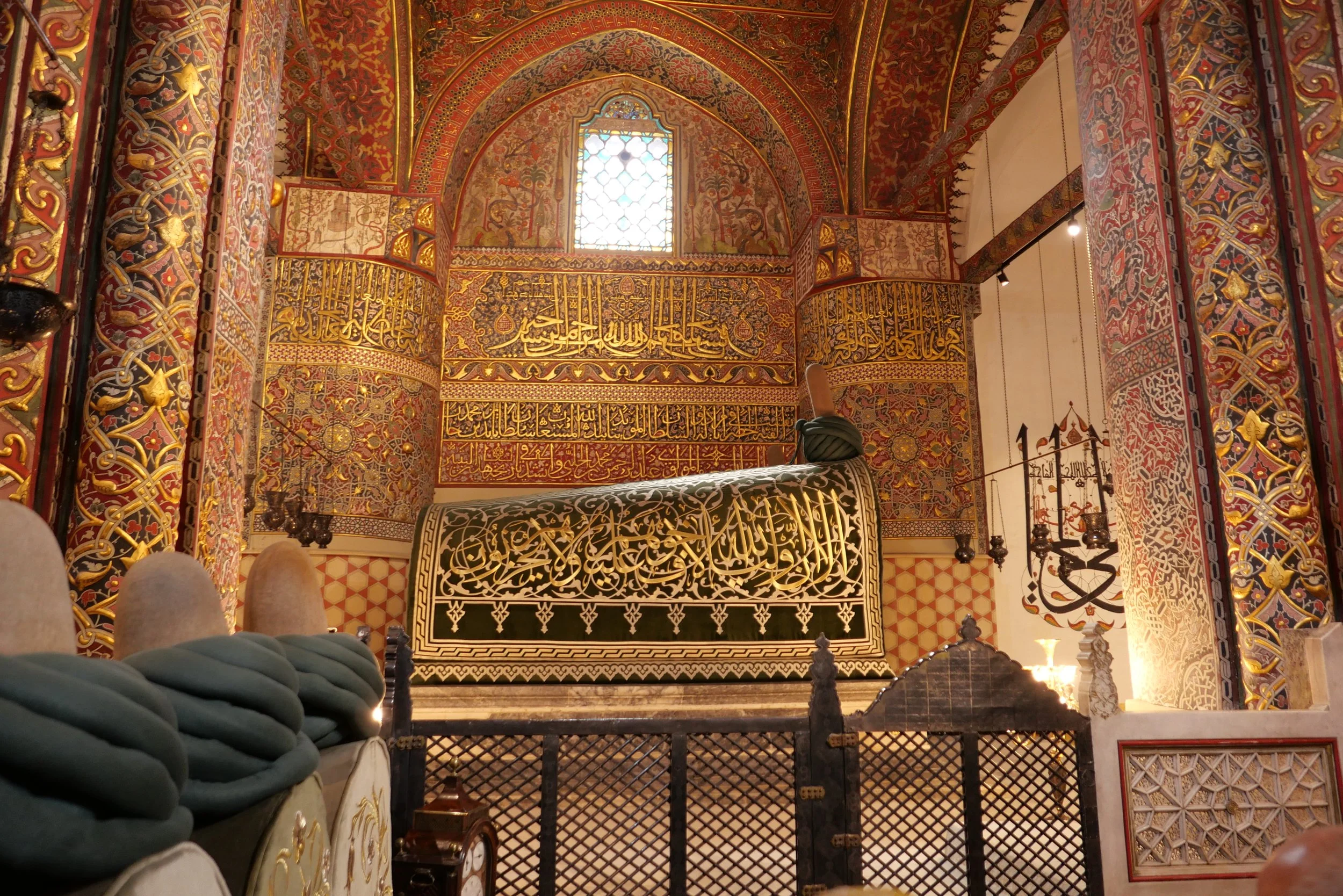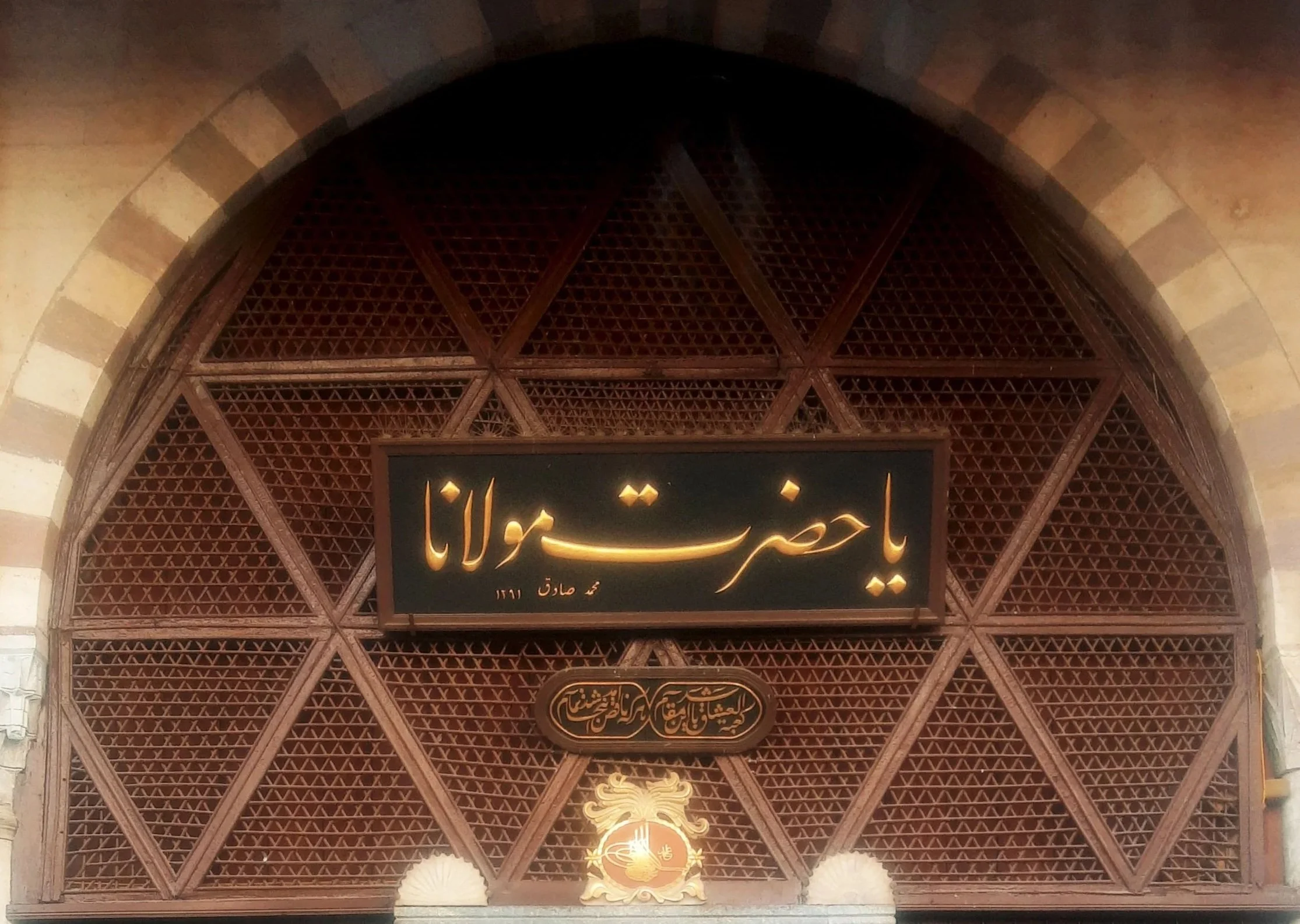
Hz. Mevlânâ Rûmî
How does one describe an ocean of love?
Hz. Mevlânâ Jalâluddîn Rûmî (1207–1273) was not an ordinary teacher but a sun of knowledge and love. Born in Balkh into a family of scholars and nobles, he journeyed with his father, Sultânu’l-Ulemâ Bahâ’ al-Dîn Veled, until they settled in Konya.
There he became a master of law and learning, yet his true awakening came in 1244, when he met Shams of Tabriz. Two oceans met, merace’l-bahreyn as the Qur’an says: “He released the two seas to meet one another”. (55:19)
From that moment he began to whirl: in words, in music, in silence, in love.
Hz. Mevlânâ Rûmî brought no new religion. He reminded us that the core of religion is love. Just as fruit cannot ripen without the sun, religion remains unripe without love.
He said:
“The path of our Prophet ﷺ is love. We are born of love, and love is our mother.”
His message is simple: there is only One. Everything we seek lies in that Oneness. It is that Oneness which reveals itself through love.
His Message
His masterpiece, the Masnavî, is not a book to be rushed through but an ocean to dive into again and again. Its stories and parables carry Qur’anic verses and Prophetic words. Sometimes comforting, sometimes challenging, yet always guiding the heart.
Hz. Mevlânâ Rûmî writes:
“The tongue that repeats Allah’s Name becomes a key; the heart that listens opens like a door.”
The Masnavî is both that key and that door.
The Masnavî: An Ocean of Wisdom

What is his relevance in today’s world?
Seven centuries later, Rûmî’s voice may be more urgent than ever:
We have abundance, yet often lack meaning.
We have many words, yet little silence.
We have speed, yet long for stillness.
His call remains: return to your heart, return to love, return to Allah.
His passing on 17 December 1273 we do not call death, but Şeb-i Arûs, the wedding night, the union with the Beloved.
Thus he lives on: not in stone or paper,
but in every heart that remembers.